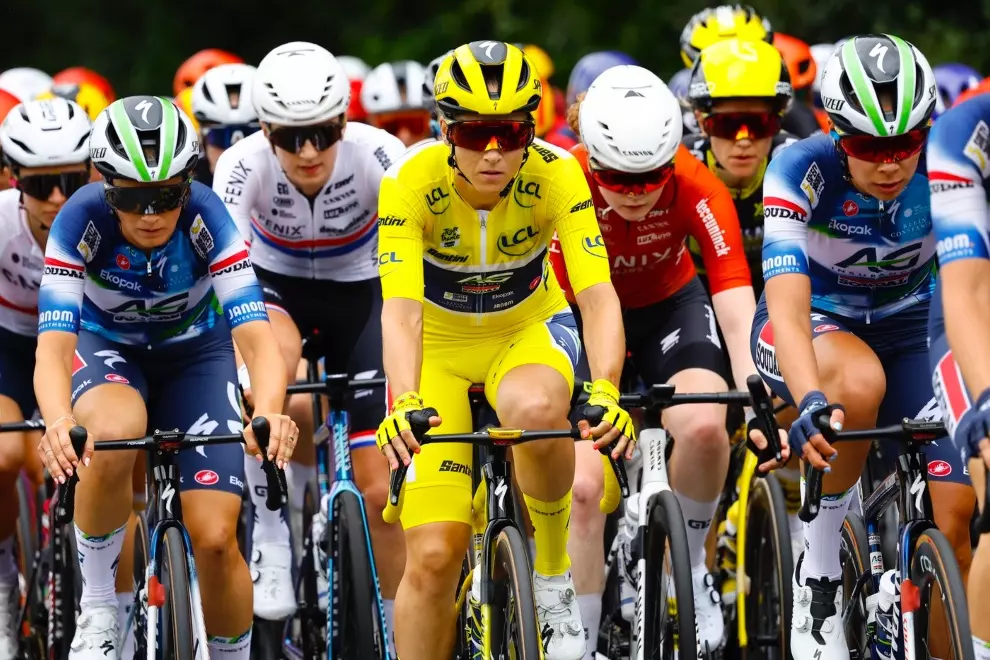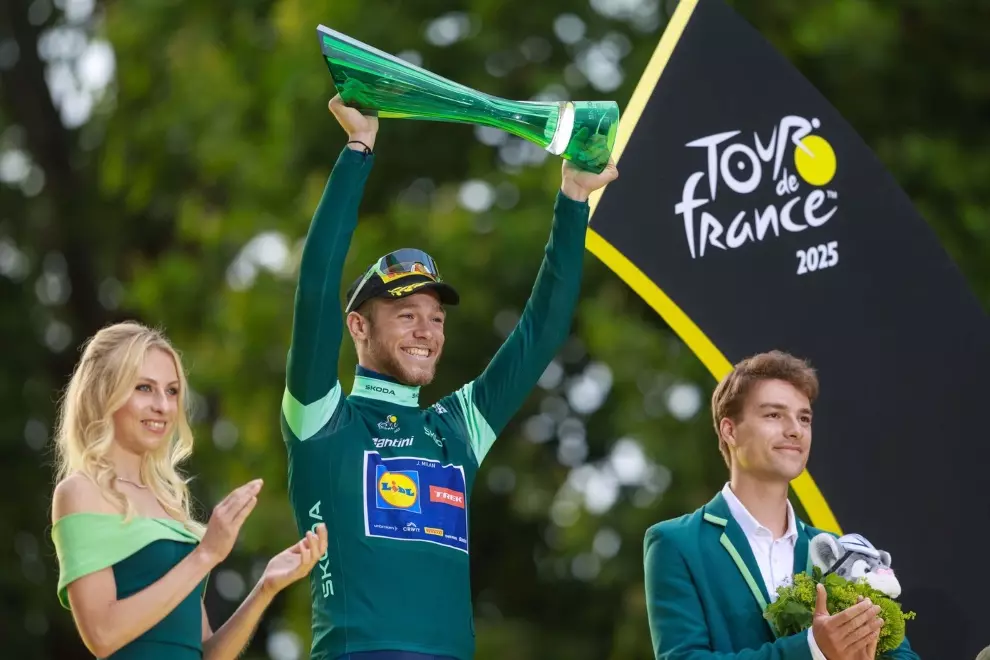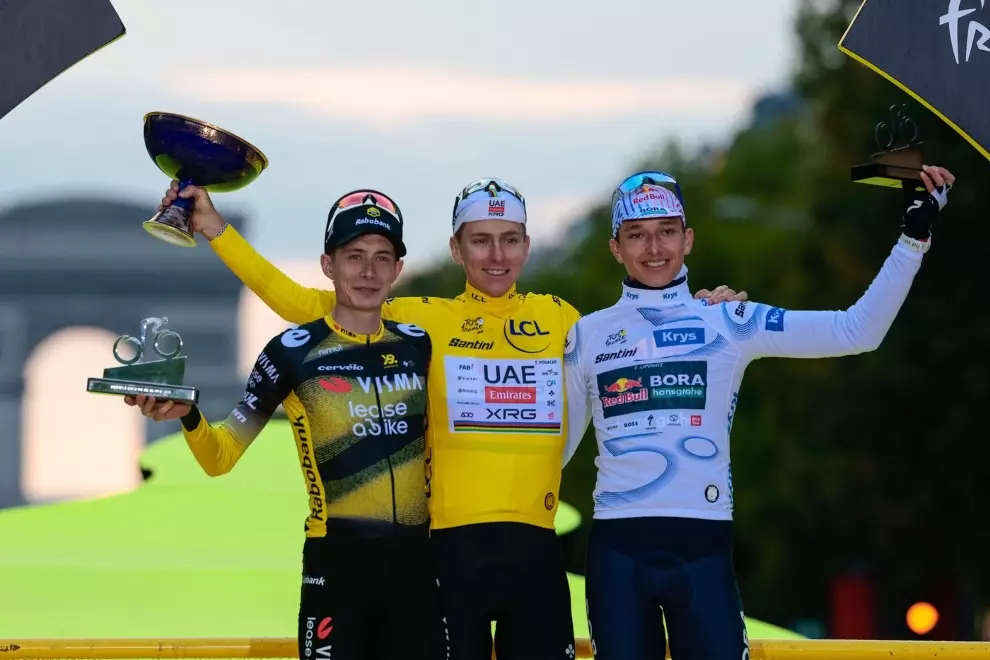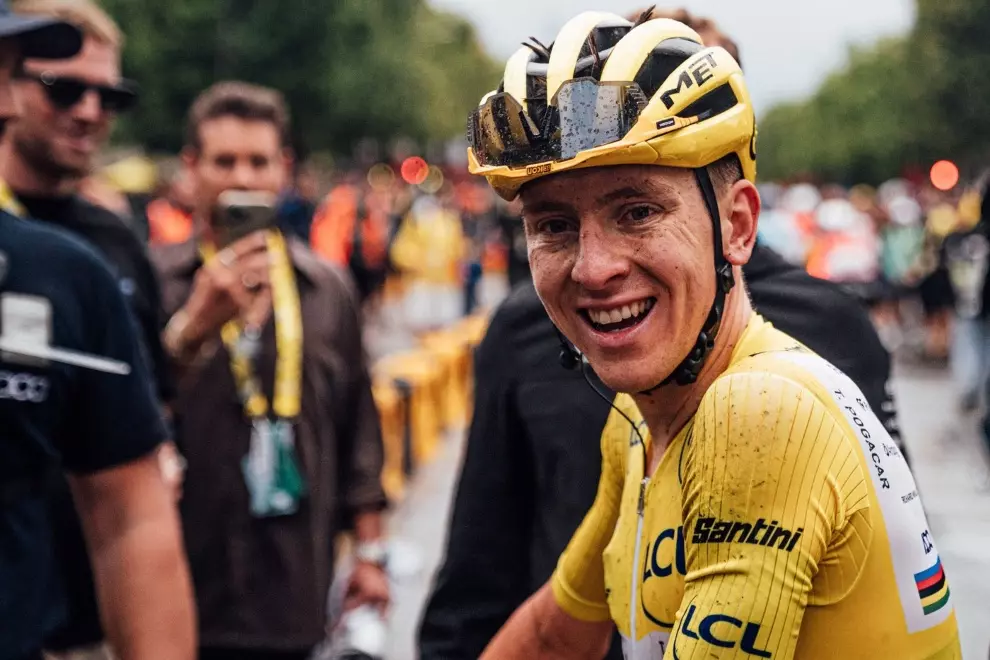Veteran Marianne Vos of the Netherlands claimed the silver medal. At the same time, Belgian favourite Lotte Kopecky took bronze after an intense battle with Hungarian champion Blanka Vas, who finished just outside the medals.
The race unfolded dramatically as Faulkner and Kopecky bridged to a breakaway duo of Vas and Vos following the final climb up the Butte Montmartre. As they crossed the River Seine, Faulkner made her decisive move, launching a powerful solo attack that left her rivals behind. The chasing trio hesitated for a moment too long, allowing the 31-year-old Alaskan to pull away and secure a historic victory.
Reflecting on her triumph, Faulkner expressed her disbelief and joy: “I feel like it’s a dream come true. I took a really big risk a few years ago to pursue my dream, and I made it happen. It’s the best feeling in the world; I don’t know how to describe it.” She added, “I knew that it would be a really tough race, but I was racing to win. That was a promise I made to my team pursuit teammates. I had high hopes. I’m racing Team Pursuit in two days, so I said I’d only do the road race if I felt strong and had a chance of a medal.”
How the race unfolded
The race began with a 92-strong field tackling a 157.6km course through central Paris under warm, dry conditions. Early on, Burkina Faso’s Awa Bamogo attempted a solo breakaway, but was soon caught. The first significant move came from Slovakia’s Nora Jencusova, followed by a quintet including Yulduz and Fariba Hashimi (Afghanistan), Thi That Nguyen (Vietnam), Rotem Gafinovitz (Israel), and Hannah Tserakh (Neutral).
As these six riders worked together, they built a lead of over six minutes. However, the powerful Belgian and Dutch teams began to reel them in, with Ellen van Dijk of the Netherlands doing much of the heavy lifting in her final Olympic appearance. The increased pace left defending champion Anna Kiesenhofer struggling while Olga Zabelinskaya of Uzbekistan made a valiant but ultimately unsuccessful attempt to bridge the gap to the leaders.
The six breakaway riders showed remarkable sportsmanship, even pausing to help Jencusova when her chain dropped. But the peloton, led by Van Dijk, steadily closed the gap, reducing the advantage to just two minutes. As the race reached the Paris circuits, British rider Mavi García launched a series of attacks, whittling the peloton down to around 40 riders.
As the race approached the final circuits, a crash at the base of the Montmartre climb disrupted the field. Notable riders, including Kopecky and Dutch stars Lorena Wiebes and Demi Vollering, were delayed. García took advantage, leading a select group over the climb.
The final showdown
With the leading break reeled in, a select group of 12 riders emerged at the front, including Faulkner, Kopecky, Vos, Vas, and others. As the race neared its conclusion, Vos and Vas made a daring move, breaking away with 20 kilometres to go. They worked seamlessly together, building a lead that seemed decisive.
However, a relentless chase from the group behind, led by Faulkner and Kopecky, kept the leaders in sight. On the final ascent of the Butte Montmartre, Faulkner’s determined acceleration brought her and Kopecky within striking distance. With just 3.5 kilometres remaining, the groups merged, setting the stage for Faulkner’s stunning solo attack.
“I knew that Kopecky wanted to catch the front two, so I knew she’d ride with me,” Faulkner explained. “I also knew that if we caught them, then I had to attack because I couldn’t beat any of them at the line. I practised my late attack several times this year, so I felt pretty comfortable with how to do it. I just hoped it worked.”
Her bold strategy paid off, as she crossed the finish line alone to secure a remarkable victory. Kopecky led the sprint for silver, but Vos’s experience and speed saw her take the second spot on the podium, leaving Kopecky with bronze and Vas just out of the medals.
Despite her disappointment, Kopecky acknowledged Faulkner’s brilliance: “On paper, Marianne is the fastest, and when you start to think, of course… Once Kristen had gone, we knew we wouldn’t catch her, and then it was a fight for the medals.”
Faulkner, still in awe of her achievement, summed up the surreal experience: “I was pretty sure I’d won, but it was like, ‘What in the world just happened?’ I couldn’t process it. It took me a few minutes. I had to double and triple-check that I won gold. I knew it, but I didn’t know it.”
Her victory capped a gripping Olympic road race, leaving fans and competitors alike marvelling at the unpredictability of what they had just witnessed.




